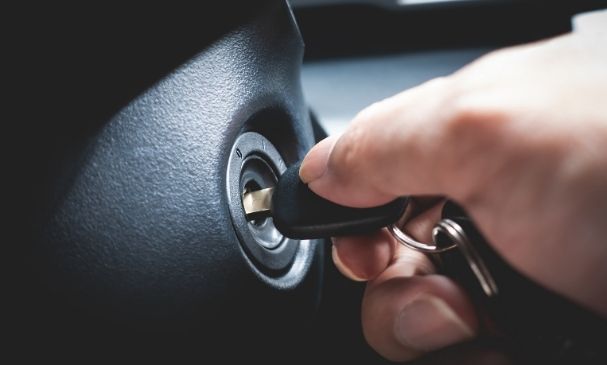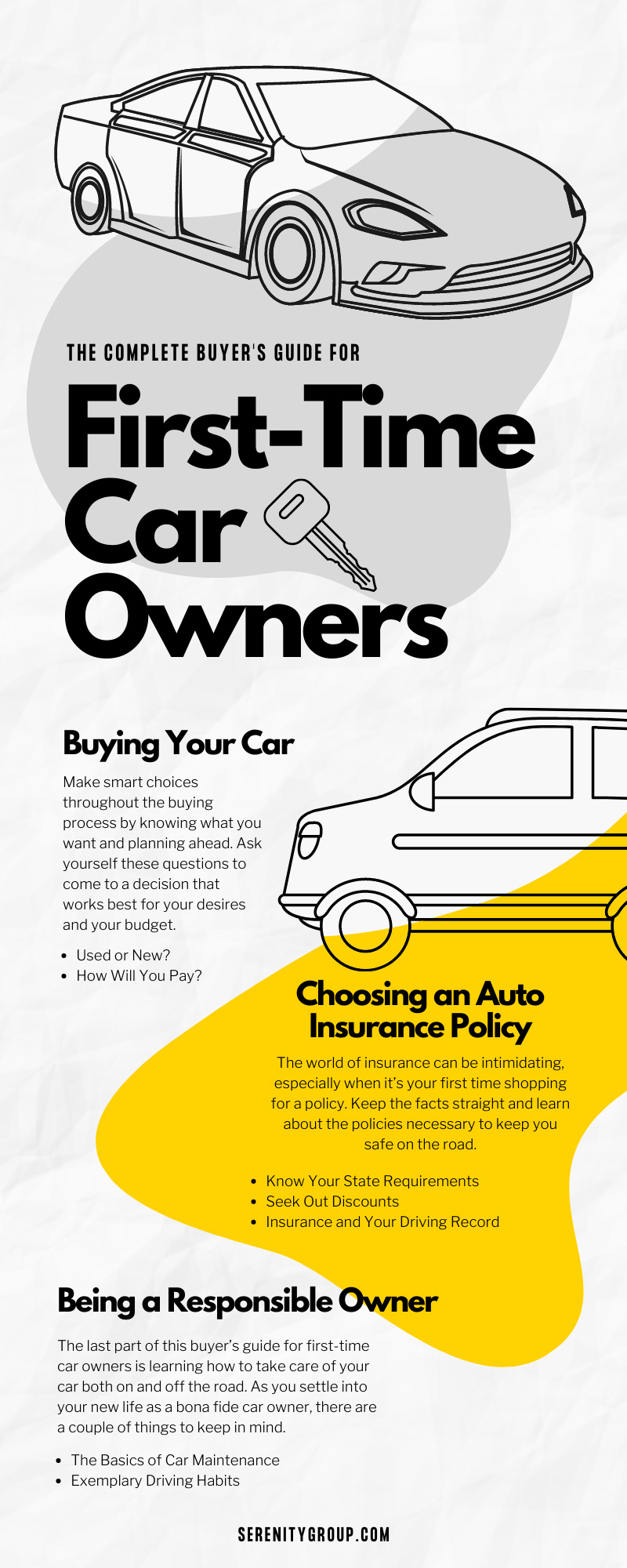How To Choose Car Insurance as a First-Time Car Owner

For many people, purchasing your first car is one of the initial steps into adulthood and independence. This life change is both exciting and daunting, and you want to make the right decision. That’s why it’s important to learn all you can about buying your car—and what to do post purchase. The more prepared you are, the easier the entire process will be. Make the most of this thrilling moment with this complete buyer’s guide for first-time car owners.
Buying Your Car
You’re excited to get those new keys in your hand, but there are a few steps you need to accomplish first. That last thing you want is to pour your entire budget into a car and then have nothing left for insurance, repairs, and other expenses. Make smart choices throughout the buying process by knowing what you want and planning ahead. Ask yourself these questions to come to a decision that works best for your desires and your budget.
Used or New?
One of the earliest choices you’ll make is whether you want a used or a new vehicle. There are benefits and drawbacks to both options. Used cars are, of course, cheaper than brand new models. However, they take a little more work to purchase. When you buy a used car, it’s essential to learn the vehicle’s history. You don’t want to sign all the paperwork and drive a car home just for it to break down within a couple of months. Purchasing a new vehicle helps you avoid the hassle of determining a car’s condition. As long as you can afford it, you can rest easy with the knowledge that you’re purchasing a high-quality vehicle that will last you a while.
How Will You Pay?
Cars are expensive, even if you’re buying used. It’s a good idea to figure out your payment plan before you talk to any dealers. Decide what your price range is and commit to it. Next, decide whether you’re going to pay with cash or finance your car. Your credit score can help determine this choice. If you have good credit, you’ll be able to finance your car with minimal interest. However, many first-time car owners lack credit due to a simple lack of experience. If that’s the case, consider paying the full amount in cash to avoid steep interest rates.
Choosing an Auto Insurance Policy
Unfortunately, the spending isn’t done once you own your car—not even if you pay for it entirely at the dealership. Once you make your decision, your next step is to purchase an auto insurance policy that covers you and your vehicle without breaking the bank. If it’s your first time shopping for a policy, you may not know how to choose the car insurance that’s right for you. A car insurance provider can run you through the available options and help you make the best choice for your situation and budget. Keep the facts straight and learn about the policies necessary to keep you safe on the road.
Know Your State Requirements
Every state has different rules and standards regarding car insurance. Coverage requirements, minimum liability limits, and other details will vary depending on where you live. Learn these rules and keep them in mind when shopping for a policy. This will help you understand which coverage you need on your policy. However, don’t skip over unrequired policies just because they aren’t mandatory. Learn the ins and outs of each option at your disposal so that you can make informed decisions when building your policy.
Seek Out Discounts
Are you wondering how to choose car insurance that doesn’t ruin your budget? A car insurance policy doesn’t have to be exorbitantly expensive. When you make smart decisions and seek out opportunities, you can save money both with your initial purchase and in the months or years to come. The first step to saving money on car insurance is to compare quotes. Every provider is different, so take the time to look at everyone’s policies and discounts side by side. Speaking of discounts, insurance providers often offer deals and savings. Look into options like student or military discounts or savings based on how and when you drive.
Insurance and Your Driving Record
One surefire way to keep your insurance rates low is to be a good driver. That said, mistakes happen to the best of us. Mistakes on the road lead to marks on your driving record, which in turn affects your auto insurance premium. If you cause an accident or face a charge for a DUI or other major traffic violation, you will likely receive an SR22 insurance requirement. Your insurance provider will consider you to be a high-risk driver, which means they’ll charge you a higher premium. Like the rest of your policy, the details of an SR22 insurance requirement vary from state to state. However, you can still seek out the cheapest SR22 insurance in California or any other state by comparing quotes and learning more about specific policy options.
Being a Responsible Owner
Once you bring your car home and tuck your new insurance cards into your wallet, the journey still isn’t over. How do you ensure this purchase continues to be a great decision for years to come? The last part of this buyer’s guide for first-time car owners is learning how to take care of your car both on and off the road. As you settle into your new life as a bona fide car owner, there are a couple of things to keep in mind.
The Basics of Car Maintenance
You don’t have to be a certified mechanic to keep your car in good shape, but all car owners should still learn a few basic maintenance skills. Checking tire pressure, refilling wiper fluids, and keeping your car clean are simple yet invaluable tasks that will help extend the life of your vehicle. On top of that, you need to stay on top of regular maintenance. Don’t skip out on your oil changes or tire rotations, even if your car is in good shape. A little routine work here and there will keep your car running smoothly for as long as possible.
Exemplary Driving Habits
Another way to keep your car—and yourself—in good shape is by being a safe and responsible driver. Even the simplest rules of road safety can make a huge difference when you drive. Practice defensive driving skills like keeping space between yourself and other vehicles, braking and accelerating steadily, and staying aware of your surroundings. Follow safety standards like wearing a seatbelt, driving the speed limit, and eliminating distractions while you drive. The safer you are behind the wheel, the less likely you are to run into accidents, traffic tickets, or vehicle wear and tear that can ruin the experience of being a proud new car owner.


Recent Comments